Head of the UGCC: Ukrainian conflict is Europe's biggest crisis since WWII
Monday, 08 June 2015, 18:30 The Head of Ukraine’s Greek Catholic Church said the country is facing a “humanitarian catastrophe” with global consequences that cannot be ignored by the international community.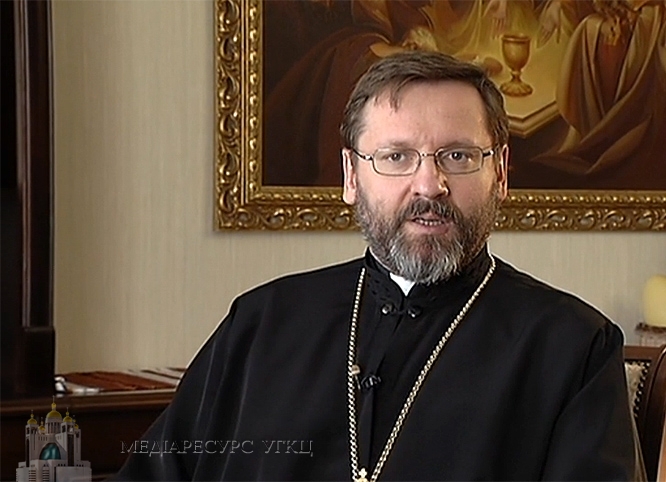
-
See also:
- Appeal of His Beatitude Sviatoslav to the Sons and Daughters of the Ukrainian People in Ukraine and Abroad, and to all People of Good Will
- His Beatitude Sviatoslav congratulated Sisters of the Incarnate Word Order with on holding Cathedral Chapter
- A patriarchate for the UGCC is not only a title. Above all, it’s a way of existing, — His Beatitude Sviatoslav
He called on participants of next week’s G7 Summit in
“The aggression against
Conflict erupted in
More than 6,000 people have died in the conflict in eastern
A ceasefire was brokered and officially began at midnight Feb. 15, however fighting has continued.
Archbishop Shevchuk told CNA May 28 that the conflict in
He spoke of the
Below is CNA’s full interview with the archbishop, edited for clarity and grammar:
Q: In February a ceasefire in the conflict zones of
A: We have received the news about a cease-fire agreement in
Q: The topic of the Ukrainian conflict will most likely be addressed during the G7 Summit in
A: For ordinary Ukrainian citizens it is very important that the international community, especially the G7 Summit, considers the war in
Q: Pope Francis has shown great interest in the Ukrainian conflict, and is credited with having helped restore relations between the United States and Cuba. Do you think that the Vatican could help in reaching a peace agreement in Ukraine?
A: Holy Father Pope Francis has stated on numerous occasions that he will do everything possible to prevent the outbreak of a new war in Europe. During the last visit “Ad limina” of Catholic Bishops of Ukraine to the Vatican (Feb. 20, 2015), Pope Francis assured our Bishops that the Holy See will do its best to secure peace agreements in Ukraine. How it will happen, what steps will be taken, we don’t know. But the history of our Church teaches us that the peace of Christ always wins over the war, and the truth of God is on the side of those who are unjustly treated. Seventy years ago all our Bishops were imprisoned by the Stalin regime, our Church structures were destroyed, our church property was confiscated. Our enemies thought they put to an end the very existence of our Church, but to their great surprise after many years of clandestine existence in the underground, our Church has risen to a full ecclesial existence 25 years on the eve of Ukraine’s Independence. We want to believe that today God is with Ukraine because our country is a victim of unjust military aggression. We are convinced that our Savior, who became a victim Himself on the cross for the salvation of the humankind, will help us. And the Holy Father, who is Vicar of Christ on earth, is and will be our support and our help in these difficult times.
Q: The Pope has also been invited by the bishops to visit Ukraine. Has there been a response on the part of the Vatican as to when a visit could foreseeably take place?
A: The Catholic Bishops of Ukraine as well as Ukrainian President Petro Poroshenko have officially invited the Pope to visit Ukraine. In our opinion, similarly to military conflicts between Argentina and Chile as well as Argentina and Great Britain, the peace mission of the Holy Father helped to stop the war. So we are convinced that the visit of the Holy Father to Ukraine would be a very powerful gesture of peace which, empowered by the Holy Spirit, would accomplish what is not possible for the G7. As far as I know there is no official response of the Holy See to this invitation, but there is no decline of the invitation either. So we pray and we hope that this visit will take place in the nearest future.
By Elise Harris, Catholic News Agency

We can imagine what the prayer of the prisoners in the Russian torture centers in the Ukrainian Kharkiv region was like – Head of the UGCC on the 206th day of the war 17 September
A vast cemetery, a mass burial, was found near the city of Izyum, in which more than 400 innocently killed and tortured people have already been...
-
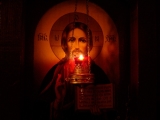 Глава УГКЦ у 158-й день війни: «Нехай Господь прийме з уст нашої Церкви псалми та моління за всіх тих, які особливо просять нашої молитви»
Глава УГКЦ у 158-й день війни: «Нехай Господь прийме з уст нашої Церкви псалми та моління за всіх тих, які особливо просять нашої молитви»
-
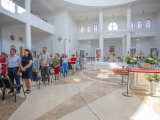 «Сила, яка походить із вірності Христові, є стержнем, який ніхто не може зламати», – Блаженніший Святослав
«Сила, яка походить із вірності Христові, є стержнем, який ніхто не може зламати», – Блаженніший Святослав
-
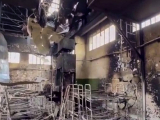 Глава УГКЦ у 157-й день війни: «В ім’я Боже ми засуджуємо звірства в Оленівці і світ повинен це засудити як особливий вияв дикості й жорстокості»
Глава УГКЦ у 157-й день війни: «В ім’я Боже ми засуджуємо звірства в Оленівці і світ повинен це засудити як особливий вияв дикості й жорстокості»
-
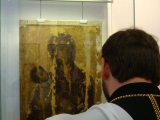 «Боже, почуй наш плач і поспіши нам на допомогу і порятунок!», – Глава УГКЦ у 156-й день війни
«Боже, почуй наш плач і поспіши нам на допомогу і порятунок!», – Глава УГКЦ у 156-й день війни
-
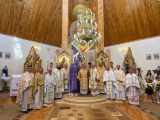 «Бог йому дав серце і душу українського народу»: відбулася щорічна проща до Прилбичів з нагоди уродин митрополита Андрея Шептицького
«Бог йому дав серце і душу українського народу»: відбулася щорічна проща до Прилбичів з нагоди уродин митрополита Андрея Шептицького
-
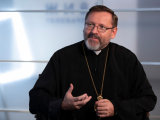 Глава УГКЦ: «Я горджуся українськими патріотами, які без найменшої краплі ненависті готові захищати своє»
Глава УГКЦ: «Я горджуся українськими патріотами, які без найменшої краплі ненависті готові захищати своє»
-
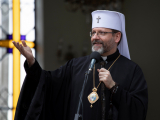 Блаженніший Святослав закликав українську молодь скласти присягу на вірність Христові
Блаженніший Святослав закликав українську молодь скласти присягу на вірність Христові
-
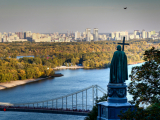 Глава УГКЦ у 155-й день війни: «Помолімося, щоб не втратити скарбу віри князя Володимира»
Глава УГКЦ у 155-й день війни: «Помолімося, щоб не втратити скарбу віри князя Володимира»
-
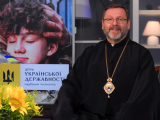 Блаженніший Святослав у День державності України: «Наша Держава – це для нас питання життя або смерті»
Блаженніший Святослав у День державності України: «Наша Держава – це для нас питання життя або смерті»
-
 Глава УГКЦ у 154-й день війни: «Нехай Господь Бог прийме у свої вічні обійми журналістів, які віддали за правду своє життя в Україні»
Глава УГКЦ у 154-й день війни: «Нехай Господь Бог прийме у свої вічні обійми журналістів, які віддали за правду своє життя в Україні»
-
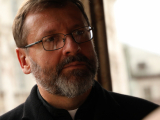 Глава УГКЦ у 153-й день війни: «Принесімо наш біль перед Боже обличчя і будьмо певні, що Він нас вислухає»
Глава УГКЦ у 153-й день війни: «Принесімо наш біль перед Боже обличчя і будьмо певні, що Він нас вислухає»
-
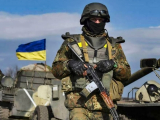 Глава УГКЦ у 152-й день війни: «Помолімся молитву заступництва за наших воїнів»
Глава УГКЦ у 152-й день війни: «Помолімся молитву заступництва за наших воїнів»
-
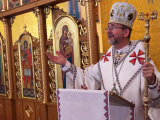 «Віруюча людина не може бути байдужою, коли бачить страждання іншої людини», – владика Богдан Дзюрах
«Віруюча людина не може бути байдужою, коли бачить страждання іншої людини», – владика Богдан Дзюрах
-
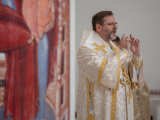 «Серед нашого страждання творімо простір для прояву Божої всемогутності», – Глава УГКЦ у 6-ту неділю після П’ятдесятниці
«Серед нашого страждання творімо простір для прояву Божої всемогутності», – Глава УГКЦ у 6-ту неділю після П’ятдесятниці
-
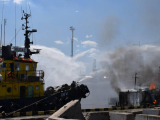 Глава УГКЦ у 151-й день війни: «Російське віроломство ми перемагаємо силою любові до нашої Батьківщини»
Глава УГКЦ у 151-й день війни: «Російське віроломство ми перемагаємо силою любові до нашої Батьківщини»

